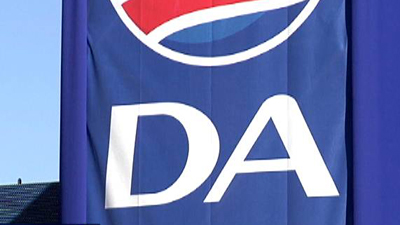South Africa’s official opposition party, the Democratic Alliance, formerly known as the Democratic Party (DP), espouses liberal democracy and free market principles.
The party’s forerunner was the Progressive Federal Party (PFP), whose veteran politician Helen Suzman was its only representative in the white Parliament for many years. Suzman upheld liberal policies in the apartheid-era legislature and spoke out against apartheid laws.
In the 1980s the party increased its Parliamentary seats to seven. Among the new MPs was Tony Leon, who became DP leader in 1996, introducing a more aggressive approach to opposition politics.
In 2000 the DP joined forces with the New Nationalist Party to form the Democratic Alliance (DA). But the NNP withdrew from the pact in late 2001, and was disbanded in 2004. Leon resigned as party head in 2007, to be replaced by Helen Zille, who is also the premier of the Western Cape.
Its leader in parliament is Lindiwe Mazibuko, who leads a parliamentary caucus of 77 members (67 in the National Assembly and 10 in the National Council of Provinces)
The DA increased its share of the vote from 1.7% in 1994 to about 10% in 1999 (as the former DP), 12.4% in 2004 and 16.6% in 2009.
Hardly a week after Agang SA leader Mamphele Ramphela agreed to stand as the DA’s Presidential Candidate in the 2014 general elections, the much-publicised marriage came down crumbling
Hardly a week after Agang SA leader Mamphele Ramphela agreed to stand as the DA’s Presidential Candidate in the 2014 general elections, the much-publicised marriage came down crumbling. This after Ramphele’s sudden u-turn on an earlier decision to become the DA’s Presidential Candidate in the upcoming elections. She refused to accept the party’s membership, which was a prerequisite if she were to represent the party in parliament.
Zille said the Ramphele’s move was well-calculated, but as it turned out, it didn’t work out. Ramphele’s decision to renege on the agreement was described by Zille as a demonstration that Ramphele could not be trusted to see any project to its conclusion.
Zille says she stated to Ramphele that it is political nonsense for one party leader to become the other’s presidential candidate.
2014 election manifesto
The DA’s Manifesto is aimed at job creation. According to party leader Helen Zille this can only be done by cutting corruption.
The DA will incentivise job creation, dramatically broaden the skills base, drive down high prices that hamper growth and make South Africa an attractive environment for businesses to invest and grow.
The DA will break up inefficient state monopolies, and distribute shares to ordinary citizens, to increase competition and bring down prices.
DA prioritising education and training to equip school leavers and young people to compete in a growing economy. To ensure that children matriculate with the skills they need to succeed, they will focus on training more teachers and ensure that school environments are conducive to learning.
The DA vows to bring about change to South Africa and address pressing issues in society. As government the DA will:
• Save R30 billion per year by cutting corruption and firing corrupt officials.
• Speed up the delivery of housing and basic services through clean and efficient government.
• Introduce a constituency-based electoral system to make MPs more accountable.
• Make communities safer by putting 250 000 properly trained police officers on the streets.
• Fight gangsterism and drugs by re-instating the Narcotics Bureau and building more rehabilitation centres.
• Work with the private sector to provide quality, affordable health care for all.
• Ensure that the social grants system is a means to lift people out of poverty.
• Dedicate an extra R10 billion to speed up land reform and provide training and support for emerging.
Job creation is an integral part of the DA campaign. Through an economy that grows at 8% to create 6 million real jobs. They vow to:
• Provide quality education by training 15 000 more teachers per year and giving every child a textbook for every subject.
• Increase the NSFAS budget to R16 billion so that no student is denied further education because they cannot afford it.
• Create one million internships to give work experience to young job seekers.
• Provide seven million Expanded Public Works Programme (EPWP) opportunities to alleviate poverty and provide a step-up for job seekers.
• Make South Africa a nation of entrepreneurs by cutting red tape and providing more support and training for small business.
• Improve black economic empowerment so that it rewards companies that invest in their workers and create jobs.
• Break up inefficient state monopolies, and distribute shares to ordinary citizens, to increase competition and bring down prices.
• Invest at least 10% of GDP in the roads, ports, railways, airways, water and communication infrastructure that the economy needs to grow.
http://www.da.org.za/
DA National, Provincial and Regional Lists:
– By Southafrica.info


